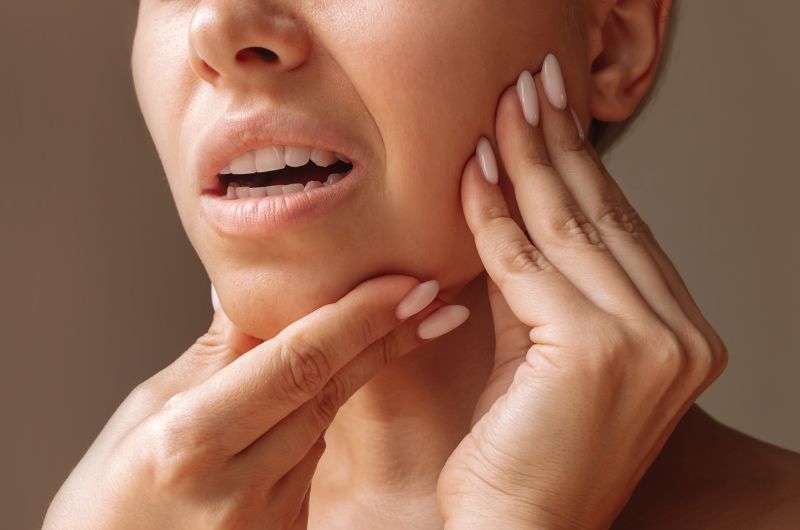
TMJ/TMD Treatment In Chandkheda
The TMJ, or temporomandibular joint, is important for jaw movement and connects the jawbone to the skull on both sides of the face. Sometimes, issues with this joint and surrounding muscles can lead to temporomandibular disorders (TMD), which cause pain, discomfort, and difficulties with chewing and speaking. At Dantbatrisa, you can find the optimal treatments for your TMJ and TMD with expert care to achieve relief and normal jaw function.
What is TMJ/TMD?
TMJ: The TMJ, or temporomandibular joint, acts like a hinge that enables smooth movements required for speaking, chewing, and facial expressions. It is located near the ear, and sometimes, due to various factors, this joint can suffer from strain and dysfunction.
TMD: TMD is a painful condition affecting the TMJ. An inflammation or injury in this joint or surrounding muscles can cause pain, stiffness, and restricted jaw movements. This condition can also cause problems in the jaw and neck and even headaches.
Symptoms of TMJ/TMD
TMD patients often experience the following symptoms:
Jaw pain or tenderness: If you experience constant pain or tenderness in the jaw, it can be a sign of TMD.
Clicking or Popping Sounds: If you notice audible sounds while opening or closing the mouth, periodically accompanied by discomfort, it can mean a TMJ problem.
Jaw Locking: Another sign of TMD is feeling that your jaw is stuck or locked in an open or closed position.
Headaches, Earaches, or Neck Pain: Sensing pain radiating from your jaw to nearby areas, such as headaches, earaches, or neck pain, can be due to problems in your TMJ.
Difficulty Chewing or Speaking: TMJ sometimes makes it difficult to eat and chew properly.
Causes of TMJ/TMD
Overview of potential causes of TMD, including:
Jaw injuries or trauma: TMJ can sometimes be caused due to injuries or trauma to the jaw. This can be because of accidents or internal pain in the jaw.
Bruxism: If you grind your teeth unknowingly, in the sleep or while stressed, it puts certain pressure on the TMJ and can cause pain and discomfort.
Arthritis: If you suffer from conditions such as osteoarthritis or rheumatoid arthritis, it may damage the joint cartilage.
Jaw Misalignment: If you have structural issues with the jaw, it can contribute to improper joint function.
Stress or Muscle Tension: Emotional and physical stress can cause muscle tension and strains around the jaw.
Benefits of TMD Treatment
Reduced Pain and Discomfort: TMD treatment reduces pain and discomfort in the jaw so that you can relax.
Improved Jaw Function: Treating TMJ makes it easier to chew, speak, and open the mouth fully.
Prevention of Further Damage: Treating TMJ disorders reduces the risks associated with grinding and joint misalignment.
Enhanced Quality of Life: TMD treatment improves sleep quality and reduces stress and overall comfort in daily life.
Frequently Asked Questions
Common symptoms of TMJ include pain in the jaw, neck, and head, jaw locking, and difficulty in chewing and speaking. If you notice such symptoms, consult your dentist without any delay.
Yes. TMJ can be treated with non-surgical options such as medicines, therapy, and exercises.
The use of a night guard depends on your condition, you might need night guard temporarily, or even permanently.


